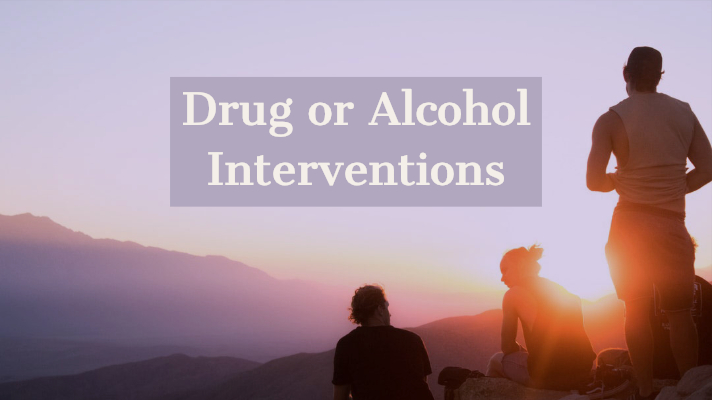What is a Drug or Alcohol Intervention?
A drug or alcohol Intervention helps a person see that there is a connection between their use of alcohol and drugs and the problems in their life. The objective of the intervention is for the person, to see that they need help. This is not just a brief “chat”, this process, is a serious, well-thought-out conversation with someone expressing concern over his or her drug or alcohol use. It should be supportive and caring, free of anger or blame, and held to let the person know you are there to help.
Conversation Intervention
If absolutely necessary, interventions can be a one-on-one conversation, but it’s more effective if all the people involved in the illness are present. It is best if, all the loved ones, join the process and deliver a pre-rehearsed conversation about alcohol and drug addiction.
The conversation offers help with a specific goal in mind: Convincing the person to accept addiction treatment. Any intervention requires careful preparation. Most alcohol and drug treatment centers have counselors who are trained to help families prepare for the confrontation, which always takes place in a “controlled” environment, specifically selected to put the alcoholic in a position in which he is most likely to listen. Sometimes, the intervention comes as a total surprise to the alcoholic, but recently new techniques have been developed in which the members of the intervention team tell the alcoholic that they are talking with a counselor about his drinking problem several days prior to the actual intervention.
Intervention Activities
Activities such as choosing the right people to involve, selecting the right drug treatment center, preparing for objections that may arise, should be completed in advance. The actual intervention conversation consists of each participant reading an “intervention letter” to the person of concern, which should be prepared ahead of time.
The Process
- Do your research. First, you should research chemical dependency to figure out if what is happening to your loved one is cause for concern. You may even want to talk to a therapist or attend a support group to gain a better understanding of substance abuse.
- Get people involved. People significant to the individual should gather in a group of 6-8. Keep in mind that these people should be important to him or her. Children may be included if appropriate. Get out some paper and make a list of key family members, friends, co-workers, and employers to take part in the planning and intervention.
- Strategize. Discuss barriers and difficulties that have been a hindrance to seeking help in the past. Each person should write a letter to the person of concern and read it during the intervention. This should focus on your love, care, and respect for the individual, as well as your concern and desire to help. Start with what you like about the person and happy memories you have together. Then, voice your concern about substance abuse and how you feel it has affected both your loved one and others. Speak from the heart, don’t be judgmental, and don’t let the conversation turn into an argument.
- Practice. The group members should rehearse reading their letters to one another and edit them to remove anger, judgment, and blame. They should also decide the order in which the letters will be read, putting more sensitive readers in between stronger ones. There should be some bottom lines and “ultimatums”.
Drug or Alcohol Intervention Day
Have each member speak. Following the rehearsed format for the meeting, everyone should go around and read his or her prepared statement. If a professional interventionist is involved, he or she can act as the leader of the meeting and call on people to speak. Give each family member or friend the chance to say how the person’s actions have personally affected their lives, and how much they love the person and want things to get better.
State Consequences. The impact of an intervention is its ability to create and present the “crisis” in the addicted person’s life to a point where the person chooses treatment. If the person chooses not to go to treatment, then there are usually some significant consequences that go into effect. The spouse may be ready to file for divorce. The adult children may refuse to invite the person to family functions. The job may be terminated. In general, the family and friends withdraw their support (financial, emotional, and otherwise) until the person seeks help. It is important to note that these consequences are not done to punish the individual. They are usually designed to help the family member take some action that will protect themselves from the person’s abusive behavior.
Enforce Consequences. It might be painful, but the most loving thing — is to follow your plan. The very best thing you can do is cut off funding, break up with the person, or do whatever you personally know will create a significant life change that may help the person take a new path.
◦ If another crisis happens later, take advantage of it. For example, if the person ends up in jail or in the hospital, use that experience to show the person that he or she really does need treatment. Having a second intervention may be helpful.
◦ Remember, you are helping him or her to heal. Sometimes, we need to endure the pain of a loved one in order to provide the person with the help needed to get well.
Warning. Be very careful of the mental state of the person you are performing an intervention on. Interventions should only be performed on someone with a normal state of mind, for both the target individual’s safety and the safety of the people performing the intervention.
